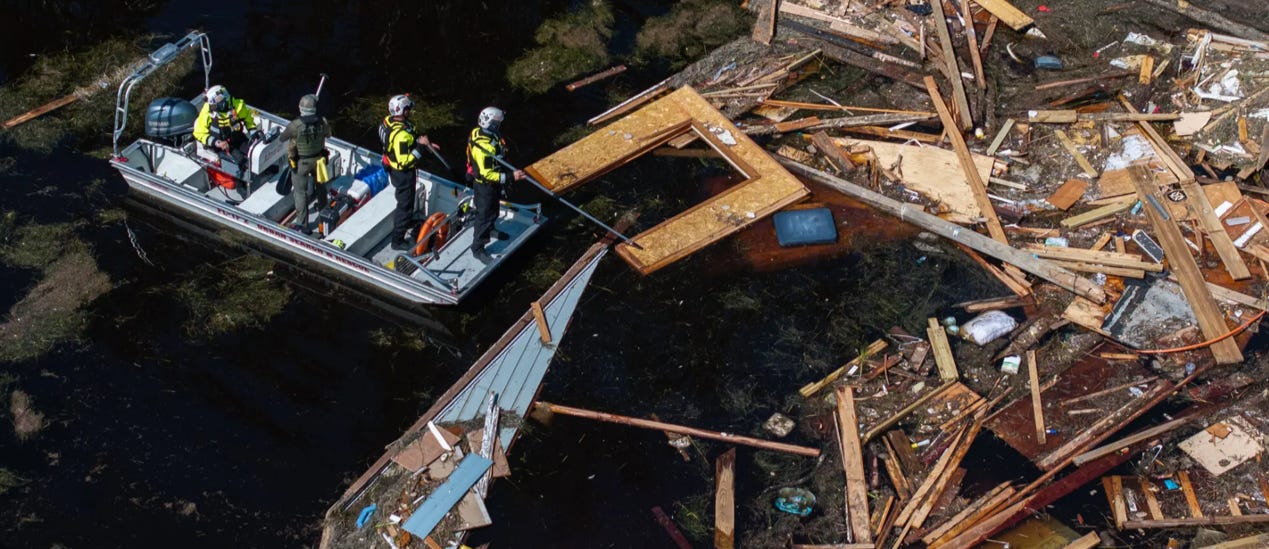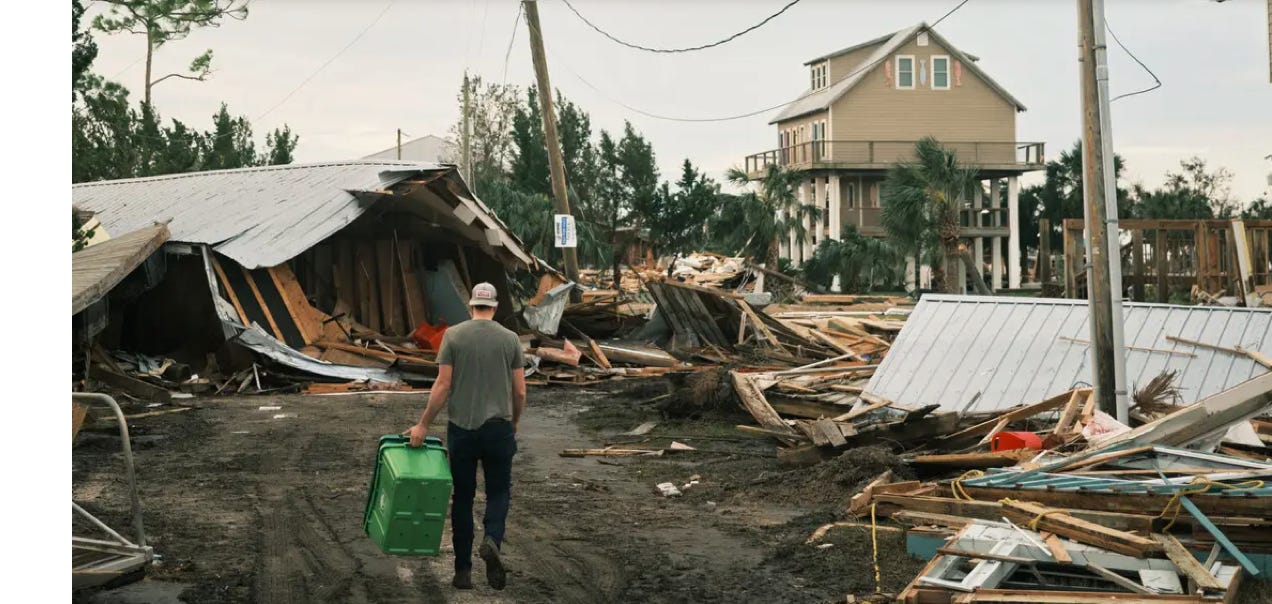
It’s not clear how CNN counted; the actual numbers of the ‘stranded’ must be in the thousands or tens of thousands. Maybe it’s the new math or DEI or something. Either way, unthinkable numbers of Americans are literally stranded in elevated pockets scattered across mountainous Western North Carolina. Many of the region’s small towns are accessed by only two or three roads, most of which feature any number of bridges located on the sides of mountains, inconveniently positioned for repair crews.
There’s no official tally of road losses. But in the aftermath of the storm, all roads in Western North Carolina were closed. Whatever the number of substantially damaged roads, many roads have been mangled beyond easy repair, and many bridges were washed away in floods and mudslides. Those tiny mountaintop towns unlucky enough to lose both their access roads have been captured by nature and are completely cut off: no power, no communications with the outside world, no water, no meds, and no easy way to get in or out.
They can’t even tell us they’re in trouble.

North Carolina’s state government is frantically working its way through the list of small mountain towns and sending rescuers to check on them. At this point, the only options for desperately needed resupply are either helicopter airdrop or a combination of adventurous hiking and rappelling.
Four days ago, these stranded folks were sitting on the couch, in the air conditioning, surfing the Internet just like you and I are doing right now.
Now, Meredith Keisler, a school nurse, informed CNN she was “collecting wood because we have to make fire, to cook food.” Meredith isn’t even in one of the trapped towns, just one where a 25-minute trip to the next town now takes 2.5 hours.

☕️ STORM CONDITIONS ☙ Monday, September 30, 2024 ☙ C&C NEWS 🦠
Hurricane's second week brings sister state relief operations; triple-weird chemical plant fire; Israel re-defines modern warfare and decapitates foe; October's long list of Heavenly Signs; and more.

